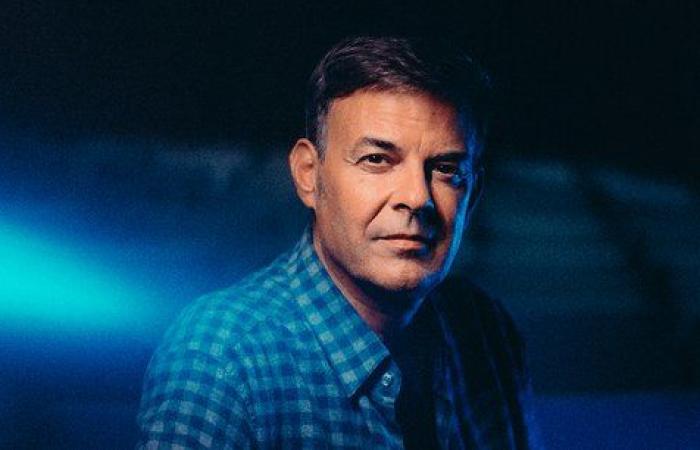On the film poster, mushrooms replace the photo of the actors. Fly agarics for Hélène Vincent, button mushrooms for Josiane Balasko, morels for Ludivine Sagnier, chanterelles for Pierre Lottin… Filmmaker François Ozon returns to nature and has fun with the poisonous ambiguity of old age: its beauty and one’s fragility, the weight of the past, the family one chooses for oneself and the drive for life that persists. The director of Eight Women, Potiche, Thanks to God et Under the sand deploys a cast that is always dazzling, dares to film the elderly differently and proves that he is still the master of transgression, even quietly.
LA TRIBUNE SUNDAY – The film opens with a very suspicious pan of mushrooms… After that, do you still eat them?
FRANCIS OZON – I have always loved mushrooms! It’s miraculous, these little things that are either delicious or toxic. It is a metaphor for life: nature which nourishes us and can kill us. When I was little, my great-aunt picked mushrooms for a meal and the whole family got very sick afterward, except for her, who didn’t eat any! I loved this story, I said to myself: “ But she tried to screw over the whole family! » In fact, when you cook mushrooms for someone, don’t you subconsciously want to get rid of them? Beware! For this film, I wanted to film nature and be in contact with it. I thought of Burgundy, where I spent all my childhood summers, and of my favorite period, autumn, that of all metamorphoses. The Autumn of Life also allowed me to talk about old age, through two women aged 70-80, because I wanted to film actresses who embrace their age, who are beautiful just as they are.
“Regulating platforms and AI” (Marie-France Lavarini, president of MFL Conseil, Philippe Buisson, mayor of Libourne and Frédéric Compain, director)
A film about two elderly women retired in the calm of the countryside… Did you want to go against everything that our society values: youth, activity, speed?
I don’t know if it’s a political gesture, but I wanted to go against this idea that women are given to be young all the time. I understand the pressure of time passing… but it feels good to film actresses with faces that are not retouched, without Botox or hyaluronic acid: they are natural and beautiful, with their wrinkles and their expressions. I love Hélène Vincent and Josiane Balasko: Hélène comes from the public theater and Josiane from the Splendid, but the chemistry clicked straight away! What is beautiful about actors who have lived experience is that they arrive with all their baggage, their faces and their bodies tell something: Hélène with her beauty, her assumed wrinkles, her vitality, and in the way of Josiane’s walk, we see everything this woman has experienced… I’m happy to have been able to make this film easily because twenty years ago, for Under the Sand, everyone told me: “ No one will be interested, Rampling is too old… » She was only 50 years old! So I see that times have changed, and thanks to MeToo there is still a positive development in the place of women.
Unworthy grandmothers, suspicions of poisoning, more or less aggressive offspring: behind the autumnal calm, the film is deliciously immoral, especially about the family…
It is immoral, because we tend to idealize old age: we make old people invisible, and when we show them, we see them as saints even though they also have a past, sexuality, even aggressiveness… Unworthy grandmothers exist! In films, they are often in the background and caricatured; I wanted them to be at the center of the story and complex. Often, we judge our loved ones without knowing their full story, and later we discover that we may have been wrong about them. I put the viewer in this position: I don’t show everything, but they know enough to form their “morals”. But there is also a lot of sweetness and love between these characters, only it is not necessarily that of blood ties: sometimes, filial love skips a generation or is woven with people outside our family. There is a strong relationship between the grandmother and her grandson, but not with her daughter. That’s the difficulty, when you’re a grandparent, of finding your place in relation to your grandchildren, the one that our children are willing to give us…
In your film, the two women have the same past, but not the same relationship to guilt…
They resolve their problems with their children differently: Marie-Claude feels terribly guilty, she wonders what she did wrong, if she was a good mother, while Michelle says to herself: “ We did what we could. » In life, when others collapse, there are people who are forces of nature, who experience painful things, but who bounce back: Michelle has this strength, even if we can also find it monstrous or insensitive… This story resonates with our times, through the theme of secrecy, of the unsaid… Today, opinions are black or white, there are no nuances, no ambiguity, no of complexity. In my film, on the contrary, I wanted to fall into a well of complexity, that we believe her guilty one day and innocent the next! I wanted to show that people do what they can and often find tortuous paths to survive: these are women with difficult pasts who decide to enjoy their retirement by coming to terms with reality a little, even if it means taking action. missed… It’s a film about the unconscious!
In terms of complexity, an icon has just fallen: Abbé Pierre. You who made the film Thanks to Godhow did you react?
Here is an unworthy old grandfather… Fortunately the Pope did not sanctify him. I know the world of the Church well so I was not surprised by these revelations, but rather I was surprised by the silence of all these people “who knew” within the Church: even the Pope was aware. In fact, this story reinforces my idea of the complexity of the human being: in his life, Abbé Pierre also created extremely positive things… It is this balance between the two which is very disturbing , to which is added the hypocrisy of the Church and its people in power, who display a message of peace and love, but who do not follow the precepts that they instill in others.
Has the MeToo era changed anything in the way you make a film?
I have never had a problem, because I have always worked with trust. But I find it good to put in “guardrails” like intimacy coordinators: it helps to reduce the drama and it really fits into the work. I have always shot intimate scenes where everything was said before: in Young and prettyMarine Vacth knew exactly what part of the body I was going to show. But I am well aware that cinema is very hierarchical and therefore that non-consensual domination can quickly occur: we are in a position of power which makes abuse possible. It’s about being aware of it and working with respect and consent.
Are you optimistic about the lessons of the MeToo era and the ability of the cinema world to rid itself of these abuses?
Many injunctions weigh on women, but I find that they are not doing so badly, given the centuries of male domination… Even if it is far from over: we see it with the Pelicot affair, which is crazy and which, in my opinion, is a turning point for many men, who become aware of what patriarchy can cause. With the liberation of speech, all our points of reference move, our views change on people, on certain icons, on works. It’s exciting, but that doesn’t mean we have to “erase”. For me, we have to contextualize to try to understand why a system protected people… This is where cinema is important: in two hours, we can embody stories that are not Manichean, with contradictions, ambiguities, to form your own opinion. It’s more interesting than a tweet.
Poison grannies (3⭐/4)
Beware of “ grannies cake “… With When Autumn Comes, François Ozon seasons his characters with a sauce of the unsaid and missed acts by coating everything, as an appetizer, with a completely autumnal tranquility: we discover the peaceful daily life, in the countryside, of Michelle and Marie-Claude, two retired friends. Until the day when the visit of Valérie, Michelle’s daughter, lifts the veil of appearances and reveals instincts that are much more immoral than they seem and a past that will not go away. After My crimeFrançois Ozon here signs a film that is deliciously poisonous in its scenario and all the more transgressive because it chooses the prism of wadded-up irreverence: in lieu of cake grannies, we discover two elderly friends, but of character, embarrassed by their offspring , but determined to continue living. A complex and deliciously immoral story about doubt, family ties and guilt, carried by the formidable performances of an always splendid cast, Hélène Vincent in the lead.
When autumn comesby François Ozon, with Hélène Vincent, Josiane Balasko, Ludivine Sagnier, Pierre Lottin, Garlan Erlos. 1:42 a.m. In theaters Wednesday.






